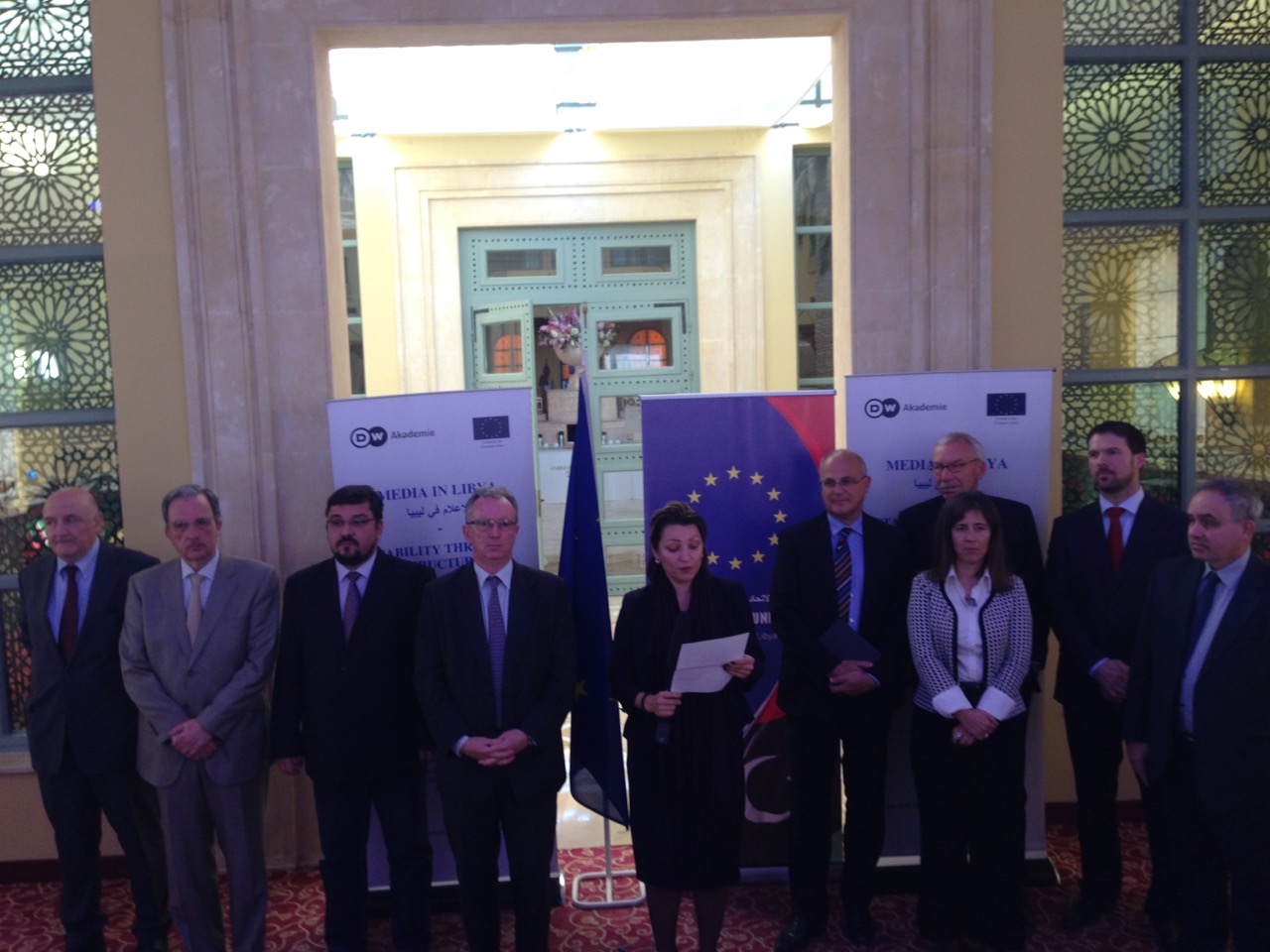By Adam Ali, Raghda Ibraheem and Fares Labedi.

Tunis, 22 January 2014:
Much of the media in Libya is taking sides in the . . .[restrict]current crisis and not providing the public with balanced, impartial information about events, according to the UN ambassador to Libya, Nataliya Apostolova.
“The media in Libya today is in many cases part of the problem, and is fueling division rather than promoting informed and responsible public discussions”, she said yesterday at a meeting between European ambassadors to Libya and members of the Libyan press currently in Tunis.
“Independent and reliable sources of news, open and responsible public debates on the way forward are essential in a society in transition, all the more so in highly polarized moments,” Apostolova told the journalists.
Speaking of the responsibility media professionals have in Libya, she said that, unfortunately, the media in Libya today was not doing the job of promoting “informed and responsible public discussions.”
“Libya needs to strength freedom of speech through a strong, independent and responsible media sector. A strong democratic society cannot thrive without accurate, impartial, responsible and reliable media,” Apostolova declared.
Nonetheless, Apostolova and the other heads of mission from a number of EU states currently operating out of the Tunisian capital because of political and security situation in Libya had had what she described as “very fruitful discussions” with the Libya journalists in Tunis. She said that they spoke about how the media sector had an important role to play during the transition process.
The EU is considering establishing an independent media channel as part of its initiative to encourage professional and unbiased reporting in Libya.
Speaking on the dialogue process being led by UNSMIL, Apostolova stressed that there could be no military solution to the current conflict in Libya.
“Only dialogue can ensure a united, democratic, inclusive, peaceful and prosperous Libya, which protects equally the rights of the Libyans.”
The Libya Herald asked Apostolova to comment on the current humanitarian situation in Libya, especially in Benghazi. She responded by agreeing that the situation was “critical” and that the EU and the international community are concerned about many areas of Libya, not only Benghazi, but also the Jebel Nafusa, Ras Lanouf and other areas.
She said there had been difficulty being able to get aid to those who are most in need. She pointed out that many NGOs had not been able to enter the country to help. European and international organisations were further hindered by the fact that many of EU states have advised their citizens not to travel to Libya.
However, the UN was, she said, giving funding to the Red Crescent whose work she commended.
It was also divulged that Germany would be conducting a training in Tunisia for paramedics who will be deployed to Benghazi this year.
As to the Supreme Court ruling on the House of Representatives (HoR), Apostolova said that “it cannot be denied that the Supreme Court ruling changed the dynamic in Libya.”
The EU respected the authority of the Supreme Court, she insisted, but added that the ruling pertained to two procedural issues. But it was important to focus on the bigger picture of the Geneva dialogue and building a national unity government rather than concentrating on the Supreme Court Ruling, she declared.
The Geneva talks had got off to a good start, she said, stressing the importance of the General National Congress (GNC) joining the next round.
Many of the ambassadors present stressed the importance of forming a national unity government. British Ambassador Michael Aron affirmed his country’s support for the Geneva dialogue and also stressed the need for a ceasefire.
Both Aron and French Ambassador Antoine Sivan restated their countries’ recognition of the HoR and Abdullah Al-Thinni’s government as the legitimate authority in Libya. [/restrict]








